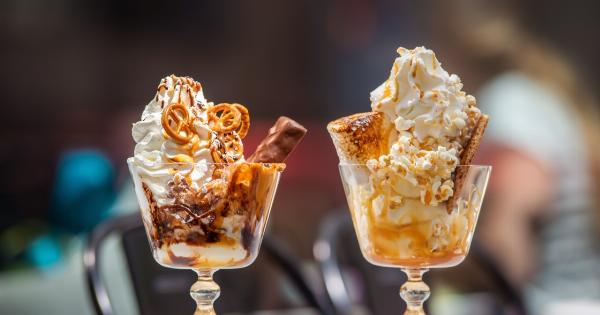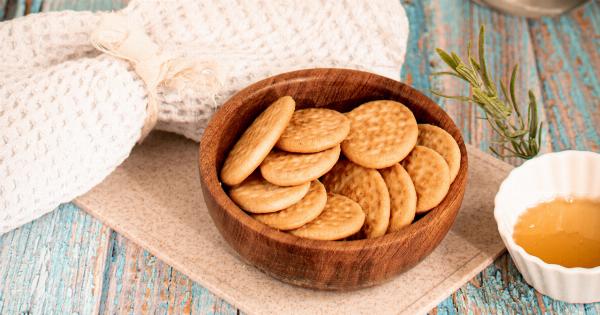Caffeine is a natural stimulant most commonly associated with coffee and tea. Many people rely on these beverages to wake them up in the morning or keep them energized throughout the day.
However, caffeine can also be found in various other foods and beverages that may come as a surprise. In this article, we explore some unlikely sources of caffeine and discuss their content and potential effects.
1. Chocolate
Yes, you read it right! Chocolate contains caffeine, although the amount can vary depending on the type and brand. Dark chocolate tends to have a higher caffeine content compared to milk chocolate, as it contains a relatively higher percentage of cocoa.
On average, a standard-sized dark chocolate bar (around 1.5 ounces) can contain anywhere from 20–40 milligrams of caffeine.
2. Ice Cream
Indulging in a scoop of your favorite ice cream might not seem like you’re consuming caffeine, but certain flavors can contain a surprising amount.
Coffee-flavored ice cream is the obvious offender, as it is made with real coffee or coffee extracts, resulting in caffeine content. Other flavors like chocolate or mint chocolate chip may also contain small amounts of caffeine due to the presence of cocoa or added chocolate chips.
3. Energy Drinks
While energy drinks like Red Bull and Monster are well-known for their caffeine content, their popularity has risen dramatically in recent years.
Packed with stimulants, energy drinks can contain anywhere from 70 to 200 milligrams of caffeine per 16-ounce can. Additionally, many energy drinks come in larger sizes, meaning the caffeine content can be even higher.
4. Soda
Sodas like Coca-Cola and Pepsi are not only loaded with sugar but also pack a caffeinated punch. A typical 12-ounce can of cola contains around 30–40 milligrams of caffeine.
Some sodas even have higher caffeine content, particularly those with added energy-boosting ingredients. It’s always a good idea to check the label if you’re unsure of the caffeine content in your favorite fizzy drink.
5. Non-Alcoholic Beverages
Some non-alcoholic beverages also contain caffeine, which may come as a surprise to many.
For example, decaffeinated coffee often isn’t completely caffeine-free; it still contains a small amount of caffeine, generally around 2–12 milligrams per cup. Flavored waters or enhanced waters labeled as “energy drinks” may also include caffeine to provide a slight pick-me-up.
6. Protein Bars and Snacks
For those looking for a quick energy boost after a workout, many protein bars and snacks on the market offer a convenient solution. However, some of these products may contain added caffeine to increase their invigorating effect.
It is essential to read the nutrition labels carefully to determine if your protein bar or snack contains any caffeine and how much is included.
7. Breakfast Cereals
While breakfast cereals are generally associated with an energizing start to the day, certain brands include caffeine as an added ingredient.
Although the amount of caffeine is often small, it can contribute to the overall daily intake, especially considering the large serving sizes many people consume. Common culprits include cereals that are chocolate or coffee-flavored.
8. Medications and Pain Relievers
Caffeine is commonly added to over-the-counter medications and pain relievers. It is believed to enhance the effectiveness of these products and alleviate symptoms more quickly.
It is crucial to be aware of the caffeine content if you are sensitive to stimulants or attempting to reduce your overall caffeine intake. Regularly read the labels and consult your healthcare professional if you have concerns.
9. Baked Goods
Some baked goods, particularly those with cocoa or chocolate as an ingredient, can contain caffeine. Items like chocolate cake, brownies, and even chocolate chip cookies can provide a mild caffeine content.
While the caffeine levels may be relatively low compared to other sources, individuals with caffeine sensitivities should still be cautious.
10. Yogurt
Believe it or not, certain types of yogurt can contain caffeine. While plain yogurt is typically caffeine-free, flavored yogurt often includes additives like chocolate, coffee, or tea extract that contribute to its caffeine content.
As with any food or beverage, it’s always good practice to check product labels to determine the caffeine content of your favorite yogurt brands.
Caffeine Consumption and Effects
It’s essential to be mindful of your caffeine consumption, as it can have various effects on the body.
While moderate caffeine intake is generally safe for most individuals, excessive consumption can lead to issues such as headaches, restlessness, increased heart rate, and difficulty sleeping. Factors such as age, weight, tolerance levels, and overall health can influence how caffeine affects each person.
To determine your caffeine tolerance and avoid excessive intake, it is helpful to be aware of the caffeine content in various foods and beverages, including those that may seem unlikely sources.
By being conscious of your caffeine intake, you can better align it with your overall dietary and health goals.
Remember, moderation is key in all things, including the consumption of caffeine-containing products.




























